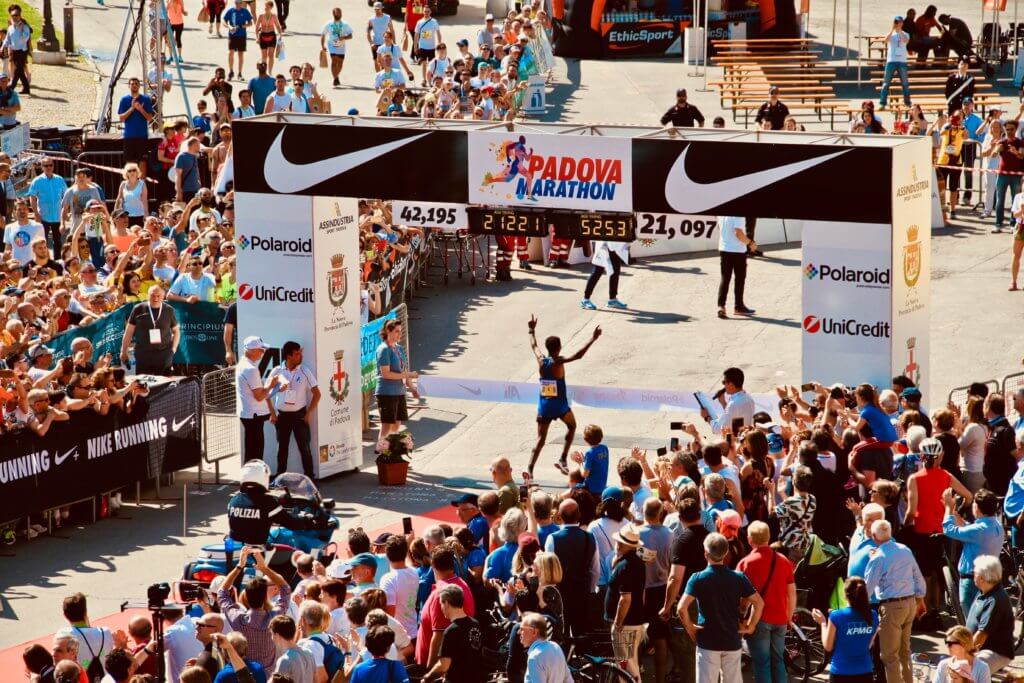MELBOURNE, Australia — With the pandemic in the rearview mirror, major races like the New York City Marathon are back on the calendar every year now, and thousands of people are looking to set their best times. For the pros in these races, a new world record may not be far behind. Researchers in Australia report that the human body is closing in on the fastest possible marathon time, predicting someone may break the two-hour mark by 2032.
After building a statistical model for male and female marathon world records year-to-year, Dr. Angus Johnson estimated that the fastest time any living human male can run a 26.2-mile race in is 1:58.05. He predicts the fastest time possible for a female runner is 2:05.31. At the current rate at which world records fall, these times may be reached within the next two decades.
Marathon milestone: The two-hour mark
In a normal year, over 800 marathons are run around the world. The fastest time ever recorded for the 26.2-mile marathon is 2:00:35 by Kelvin Kiptum of Kenya. Kiptum barely missed the sub-two-hour mark by seconds at the Chicago Marathon in October 2023. The fastest time a woman has ever completed a marathon is 2:11:53 by Tigist Assefa of Ethiopia during the Berlin 2023 Marathon.
Dr. Johnson, a Monash Business School associate professor of economics and ultramarathon runner himself, bases his predictions on a non-linear economic model applied to every official World Athletics record by men and women since 1950, studying the rate at which running records fall in the past.
“Breaking the sub-two hour marathon in an official event has attracted growing interest in recent times with commercial and international momentum building,” Dr. Johnson said in a 2019 university release.
“Prospects of a male athlete going sub-two hours in an IAAF event, even in the near future, would appear high given that the most recent world record reduced the mark by 78 seconds, and the Nike ‘Breaking2’ project produced a time just 25 seconds outside this two hour barrier. However, a 13 year wait seems more in line with the evidence.”
Using this data, Dr. Johnson broke down the odds of runners breaking the two-hour barrier each year. He predicted, for example, when a possible record will have a 10-percent likelihood of being accomplished.
The Australian team also determined the limits of human performance for marathon runners, as well as the performance gap between current male and female world records, and the sub-two-hour equivalent for women.

The odds are increasing every year
The study revealed Dr. Johnson’s model is accurate to within one percent for men (about 70 seconds) across a 66-year period. Over that time, there has been a 19-minute reduction in the world record time. Accuracy for the women’s side is within three percent (220 seconds) across the same period; which finds the female world record has plummeted by over one hour and 20 minutes.
The findings show the odds will continue getting better over time:
| Odds | Chance | When |
| 1 in 4 | 25% | March 2054 |
| 1 in 10 | 10% | May 2032 |
| 1 in 20 | 5% | June 2024 |
| 1 in 50 | 2% | April 2017 |
| 1 in 100 | 1% | January 2013 |
| 1 in 200 | 0.5% | June 2009 |
Finding female superstar runners
Dr. Johnson noted that his findings take into account the lack of world record progression by female runners. He suggested that there are too many barriers for otherwise qualified women to take part in marathons.
“In my opinion, this finding should cause public and private actors to work harder at reducing barriers and increasing opportunities for elite female athletic performance. The evidence of this study and others like it is that there are likely world-record female marathoners living today, principally in Africa. We just don’t yet know who they are,” the researcher concluded.
Johnson’s model on marathon world records was originally published in February 2019, over four years before Tigist Assefa’s record performance in September 2023. Despite that, her time is still six minutes over what scientists believe women are ultimately capable of.
The study appears in the journal Medicine and Science in Sports and Exercise.

